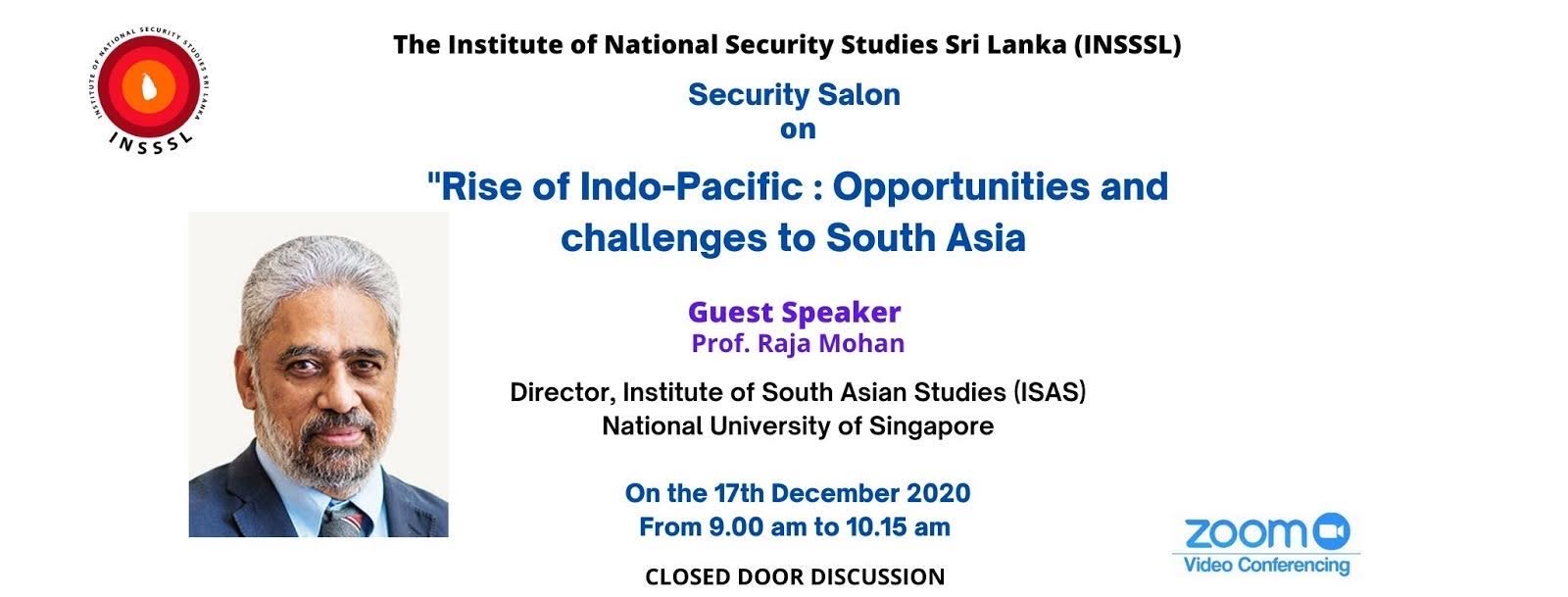
Press Release
Institute of National Security Studies Sri Lanka; think tank on national security functioning under the aegis of Ministry of Defence, organized a ‘Security Salon’ a closed door discussion on Rise of Indo-Pacific: Opportunities and Challenges to South Asia” on 17th December 2020. The guest speaker was Prof. Raja Mohan, Director of Institute of South Asian Studies (ISAS) at National University of Singapore. Admiral (Prof.) Jayanath Colombage, Director General of the Institute of National Security Studies Sri Lanka welcomed the Guest speaker and gave a brief introduction of him to the audience which was followed by a preamble to the topic. The event was attended by a limited number of academics, researchers, diplomats and military officers.
The discussion covered strategic geography of Indo-Pacific, players in the IO and opportunities and challenges. Strategic Geographical features have become fundamental when discussing the concept of Indo-Pacific. Ideas of geography has evolved from Asia-Pacific to Indo-Pacific.
During the discussion the rise of China as an economic power in the Indian Ocean was viewed as a fundamental change, which makes it difficult for littorals to be disconnected from China. The impact of the rise of China is a challenge to many. Not only extra regional states, but China’s neighbors are concerned about China’s rise and the assertiveness.
The growing conflicts between US-China and India-China was observed from a political, economic, military dimension. The impact of this is long-term. On one hand, these pose challenges to traditional form of globalization. On the other hand, capabilities of many middle powers have grown. It was highlighted that there will be a global contestation, yet the impact on Asia will be severe. However, it was discussed that how each country will react to the great rivalries will depend on their interests.
It was mentioned that strengthening the economy with a strong leadership to face external risks and reorganizing regional institutions to reduce the dangers that arise from great power rivalry are necessary.
Asia’s rise and West’s decline was on limelight for years, yet this seems to be an illusion. According to the speaker, when China emerged, challenging the power of the West, it was Asia’s rise. However, it is noted that Asia is not one entity in operational terms, as there are various divisions and imbalances within Asia. This internal polarization has changed the system internationally.
Finally, he highlighted that while policies and a national strategy should be in place to secure the national interest, it should also facilitate greater connection. It is practical for any state to cooperate with others and achieve goals sub regionally, without totally depending on grandeur outcomes, as big powers do not always abide by rules.